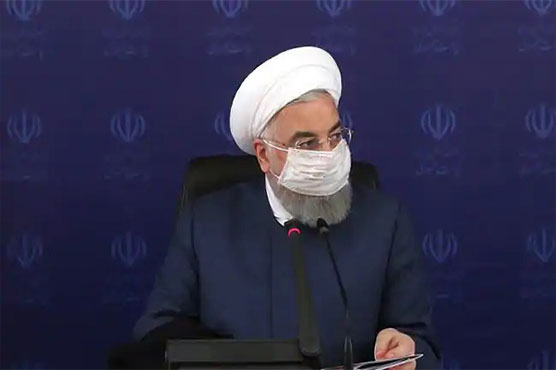Iran nuclear deal parties try to defuse tensions

Representatives of China, France, Russia, Iran, Germany and Britain held two hours of virtual talks.
VIENNA (AFP) - The remaining parties to the 2015 Iran nuclear accord on Wednesday discussed ways to shore up a deal under mounting pressure from Iranian breaches, US sanctions and uncertainty before President-elect Joe Biden takes office in Washington next month.
Representatives of China, France, Russia, Iran, Germany and Britain held two hours of virtual talks that one diplomat said involved urging Iran to stick to the deal and give space to diplomacy.
Biden, who takes office January 20, has signalled Washington would rejoin the so-called Joint Comprehensive Plan of Action (JCPOA) that was abandoned by the administration of outgoing President Donald Trump.
Senior EU foreign affairs official Helga Schmid issued a brief statement following the talks she chaired.
"Participants discussed... how to ensure the full and effective implementation of the agreement by all sides in light of existing challenges," it said.
While she did not say what those challenges were, the deal has unravelled steadily since Trump withdrew from it in 2018 and went on to impose crippling economic sanctions on Iran.
Tehran has retaliated by progressively abandoning limits on its nuclear activity laid down in the deal, most recently planning to install advanced centrifuges at Iran s main nuclear enrichment plant in Natanz.
Last week France, Germany and Britain -- collectively known as the "E3" -- condemned the plan as "deeply worrying".
Iranian Deputy Foreign Minister Abbas Araghchi repeated to the meeting Iran s position that it was not fair to expect full compliance from Tehran while it had not received the economic benefits of the deal.
- Iranian complaints -
"Iran cannot pay the full price of implementing the JCPOA and others illegal actions and the other (parties) must also pay for protecting the JCPOA," he said in a statement on the ministry s website.
Meanwhile the assassination last month of prominent Iranian nuclear scientist Mohsen Fakhrizadeh has heightened tensions in the region, with Iran blaming the killing on Israel.
In the wake of Fakhrizadeh s death, Iranian MPs passed a bill calling for further expansion to Iran s nuclear programme and an end to inspections of nuclear facilities by the UN watchdog, the International Atomic Energy Agency (IAEA).
The Iranian foreign ministry said it did not agree with the bill and President Hassan Rouhani has suggested he will not sign it into law.
Rouhani has defied criticism from Iran s ultra-conservatives to state his determination to seize the "opportunity" presented by the change of US president in January.
Rouhani has said Iran is ready to come back into compliance with the deal as soon as other parties fulfil their commitments.
- Turbulent weeks ahead -
Russia s ambassador to international organisations in Vienna, Mikhail Ulyanov, tweeted that those present at Wednesday s meeting "confirmed their firm commitment to the nuclear deal, as well as readiness to undertake intensive diplomatic efforts to ensure its full implementation".
Another diplomat speaking on condition of anonymity said the Iranians had been told "to comply with the deal, to give space to diplomacy and above all not to implement the law" to expand the nuclear programme and end inspections.
The meeting did not come "at the best moment", the diplomat admitted, given the uncertainty over possible developments between now and Biden s inauguration.
Analyst Ellie Geranmayeh of the European Council on International Relations said that "the next few weeks are likely to be turbulent on the nuclear file, with proponents of maximum pressure against Iran working hard to spoil chances of diplomacy and stabilisation of the agreement."
Naysan Rafati from the Crisis Group said a likely scenario for the immediate future is one of "triaging the existing situation through January and hoping that under the next US administration there will be a possibility of full rehabilitation".
Tensions between Tehran and the West have also been worsened in recent days by the execution in Iran last week of France-based dissident Ruhollah Zam, which provoked a global outcry.
But despite the various sources of friction, the diplomat said that inspections were continuing "as normal" on the ground.
Ministers from the remaining countries in the JCPOA will hold a further informal meeting on December 21, expected to be held via videolink.

